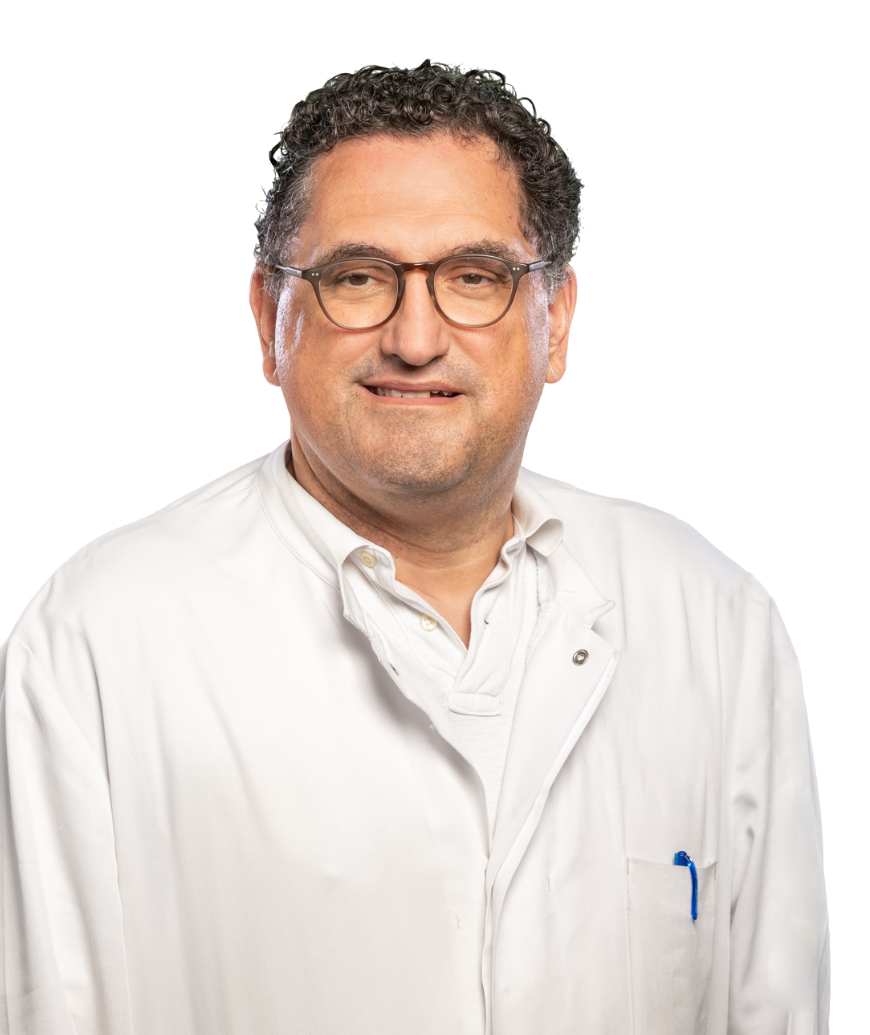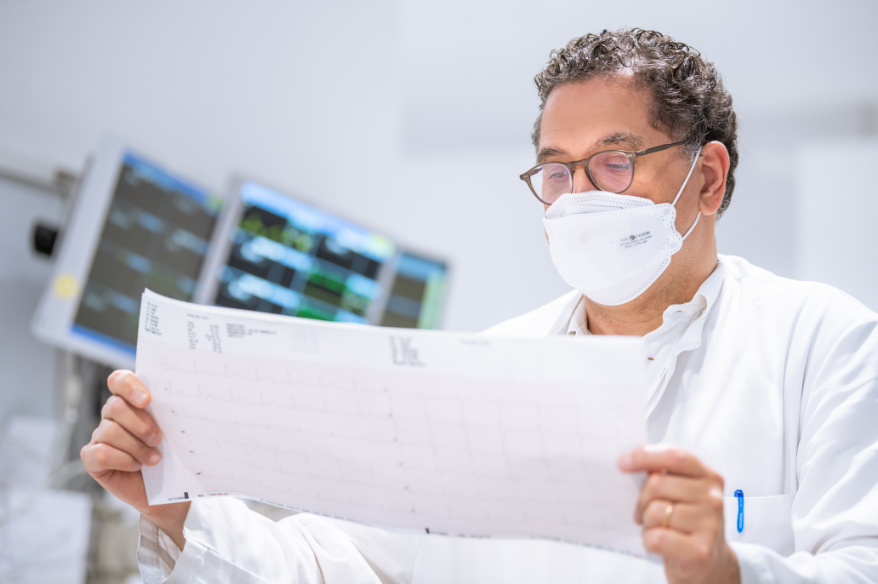
Perspective from
Prof. Dr. Evangelos Giannitsis
Head of the Chest Pain Unit
and Senior Physician for Cardiology
9:37PM. Ms. Schäfer has been in the Chest Pain Unit (CPU), the point for persons with acute chest pain or unspecified complaints in the chest area, for eight minutes now. Immediately after her arrival the nursing staff performed a 15-channel EKG, now I am evaluating the findings. It quickly turns out that EKG did not detect any abnormality, but it is still too early for an all-clear signal. Half of the EKGs do not detect any abnormalities with infarctions. My colleagues in the Surgical OP Department have thankfully already taken the troponin value into account during the blood test; this is the most important biomarker for the diagnosis of an infarction. At 9:12 PM this was 20.08 nanograms per liter, a value of up to 14 is normal. The elevated troponin reinforces the suspicion of an infarction but does not provide any guarantee. We need a second value, which is why we will repeat the blood test after 60 minutes. I go into the treatment room. “Ms. Schäfer, although the EKG did not detect any abnormalities, we nevertheless have to keep you here for some follow-up tests to be able to rule out an infarction.”
The processes in the CPU are prescribed by the German Society for Cardiology and are closely timed. And they must be for quality reasons because quick action is called for in the emergency room generally but especially in the CPU to recognize life-threatening situations immediately and to act accordingly. On one of the 13 monitors in the Coordination Room, I observe the heart rate of Ms. Schäfer, which is still stable. Every monitor shows one patient. Today all our rooms are filled as usual. I use this short break to discuss the cases of last night with my resident physician. What I like about my job as a senior physician is that I am not only a physician but also an instructor, researcher, and coordinator. The further training of our staff members drives me just as much as improving the treatment of our patients. For these reasons I also accepted the function as head of the certification committee of the German Society for Cardiology on behalf of the CPU. Together with renowned experts, we optimize the Standard Operating Procedures throughout Germany.
Innovation made in Heidelberg – Highly sensitive cardiac troponin test Prof. Dr. med. Hugo A. Katus, Senior Professor at Heidelberg University and former Head of the Department of Cardiology, Angiography and Pneumology, has sustainably improved the diagnosis of heart diseases. This test can reliably already detect one nanogram of troponin in the blood. As the troponin protein is specific to dying heart muscle cells, a high concentration of troponin in the blood provides exact information about damage to the muscles of the heart. For this achievement Katus received, among other things, the Gold Medal awarded by the European Society for Cardiology.

22:17 PM: The second blood values of Ms. Schäfer have arrived and dispel the last doubts. The troponin value has risen to 31.2. Due to the elevated concentration of troponin in combination with the epigastric pain, we can diagnose an infarction despite an EKG without any abnormal findings. Here too the next steps are defined: A cardiac catheter exam must be performed on Ms. Schäfer within 24 hours to clarify which areas of the heart are affected. It was the right decision for Ms. Schäfer to come to us in the emergency room today.
Change perspective


